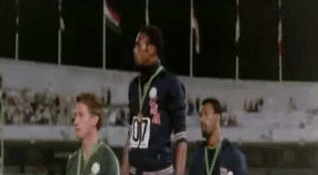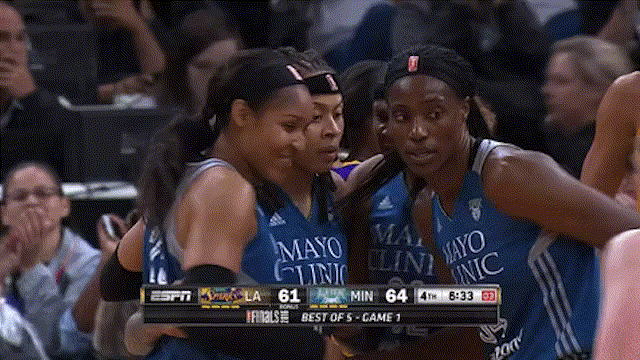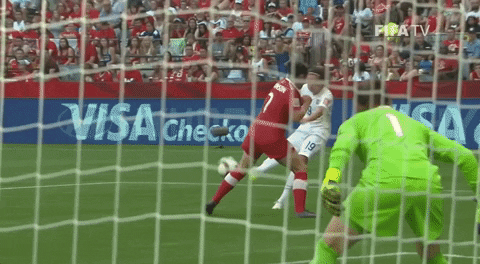No "sticking to sports" here

HELLO!
The official start of the 2020 Olympics is just five (!!!) days away. More on what we have up our sleeves for that tomorrow, but today we’re breaking down the International Olympic Committee’s (IOC) recent policy changes on athlete protests and how Olympians have made their voices heard in the past. Spoiler alert: No, “Shut up and dribble,” here.
QUOTE OF THE DAY
I think things will happen. I don’t know. No one could have told me what I was going to do in 1968 that day until a few moments before it happened.
— Gold medalist Tommie Smith, talking about athletes potentially protesting at the Tokyo Olympics. Smith, along with bronze medalist John Carlos, raised a fist at the 1968 Games — one of the most impactful protests in Olympic history. A true trailblazer.
📖 The background
From wildcat strikes to rocking the vote, athletes have made their voices heard in unprecedented ways over the past year that will forever shape sports and social justice.
- But in January 2020, prior to those movements and the COVID-19-induced postponement of the Tokyo Olympics, the IOC published guidelines specifying the forms of protest that would not be allowed at the Games.
- The list of banned actions included taking a knee, hand gestures with political meaning, and “disrespect” at medal ceremonies, with a warning of punishment for any athlete who breaks the rules. Ugh.
Those guidelines reinforced Rule 50 in the Olympic Charter, which states: “No kind of demonstration or political, religious or racial propaganda is permitted in any Olympic sites, venues or other areas.”
- In a surprising move, the United States Olympic & Paralympic Committee (USOPC) pushed back against the IOC in a December 2020 announcement, calling for changes to Rule 50 and expressing support for peaceful protest.
- A year after reprimanding athletes who protested at the 2019 Pan American Games, the USOPC shook-up the landscape with their change in stance. Is that hope we feel?
📝 The latest
Amid the global social justice movement in June 2020, many athletes, including the aforementioned Carlos, signed a letter asking the IOC to abolish Rule 50 altogether. Instead, on July 2nd, 2021 — three weeks ahead of opening ceremonies — the IOC issued Rule 50.2, relaxing the guidelines enforced under Rule 50.
- Rule 50.2 now allows athletes to express their views in some places, such as in interviews and on social media. On the field of play, however, they can only do so “prior to the start of competition,” meaning on-podium protests like Smith’s are still banned.
- Any protest deemed “targeted, directly or indirectly, against people, countries, organizations and/or their dignity,” will be subject to disciplinary action, but it remains unclear what exactly that disciplinary action will be.
And while the IOC claims Rule 50.2“provides for the protection of the neutrality of sport at the Olympic Games and the neutrality of the Games themselves,” we know sports and the Olympics have always been political.
✊ Politics and protest in the past
As we prepare for the Games to officially begin on Friday, it’s important to remember the long history of protests at the Olympics. From entire nations boycotting to singular athletes taking a stand, let’s take a look back at politics and protest on the international stage from years past.
Paris 1922: Angered that women were only permitted to compete in Olympic events deemed suitable for their “femininity and fragility,” French rower Alice Milliat founded the International Women’s Sports Federation in 1921, and by 1922, the first Women’s Olympic Games was held in Paris. Milliat even has her own statue. Très bien.
Berlin 1936: Hosted in Hitler’s Germany, the “Nazi Olympics” were a troubling example of the IOC’s repeated complacency. After overcoming a nearly successful boycott, Hitler used the Olympics to spew Nazi propaganda. From swastikas adorning flags to athletes and spectators giving the Nazi salute, racist expressions and gestures were rampant.
- U.S. track & field athlete Jesse Owens, a Black man, held his protest on the field of play, crushing Hitler’s superior Aryan race theory by winning four gold medals in Berlin. Incredible.
Mexico City 1968: As we mentioned above, amid a year of turmoil in the U.S., American sprinters Smith and Carlos each raised a black-gloved fist on the podium following the 200m race. Both were expelled from the Olympics, but their protest inspired countless athletes afterwards.
- Czech gymnast Věra Čáslavská made a statement of her own in Mexico City. Prior to the Olympics, Čáslavská spoke out in opposition to the Soviet invasion of Czechoslovakia and was forced into hiding as a result, unable to train in her normal gym.
- She was granted last-minute permission to travel to the Games, but controversial judgingled her to share gold on floor and earn a silver on beam, losing out to Soviet gymnasts. In protest, Čáslavská turned her head during the Soviet national anthem. Powerful.
Moscow 1980: The Cold War made its way to the Olympics when U.S. President Jimmy Carter called for a boycott in response to the Soviet Union’s invasion of Afghanistan, and the U.S. led a 65-nation boycott of the 1980 Moscow games.
- Joined by other global powers, including Canada and Japan, the boycott was the largest in Olympic history.
➡️ What’s next
With the IOC’s relaxed guidelines, national squads like England’s soccer team taking a kneebefore matches, and the Games coming after a year that will forever be associated with international social justice, we can certainly expect athletes to make their voices heard in Tokyo.
- Case in point, the head of Athletics Canada recently said that Canadian track & field athletes raised the topic of free speech leading up to the Games and that he wouldn’t be surprised to see Canadian athletes protest in some way.
On the U.S. side, after qualifying for her second Olympics last month, American hammer thrower Gwen Berry — who was reprimanded for raising a fist following her gold medal win at the 2019 Pan American Games — turned away from the flag while on the podium.
- Fellow Team USA member and sprinter Noah Lyles, paid homage to Smith and Carlos’ 1968 protest by raising a black-gloved first of his own ahead of the 100m race, also at the trials.
- As Lyles said after the powerful moment, “Now that we’re able to go out there and say, ‘Yes, we love our country but we still are suffering,’... I felt like I couldn’t have all this influence and not use that to something I felt passionate about.” Expect more of this in the coming days.
That’s what the Olympics is all about: Seeing athletes at the top of their game, doing what they’re passionate about on the world stage. We can’t wait to watch them compete and make their voices heard over the next few weeks. Let the Games begin!

